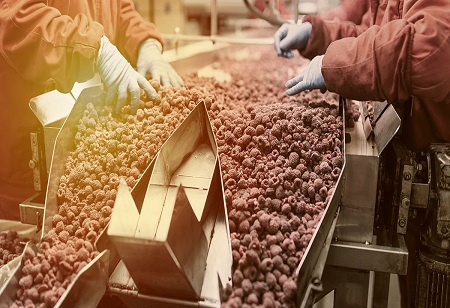
China to plant more soy, accelerate GMOs to ensure food supply

 As it continues to drive for greater self-sufficiency in its essential food supply, China will intensify efforts to enhance the output of soybeans and edible oils, citing a major rural policy document.
As it continues to drive for greater self-sufficiency in its essential food supply, China will intensify efforts to enhance the output of soybeans and edible oils, citing a major rural policy document.
As concerns about feeding its 1.4 billion people rise due to the COVID pandemic, rising trade tensions, and escalating climatic disasters, the nation that purchases the most soybeans globally is attempting to lessen its significant reliance on imports of the commodity.
The State Council, China's cabinet, restated a recently declared intention to increase grain production capacity by 50 million tonnes, from present production of more than 650 million tonnes, in its annual rural policy blueprint, known as the "No. 1 document."
"The primary task of a strong agricultural country is to ensure national food security," Agriculture Minister Tang Renjian said at a news conference on Tuesday on the policy blueprint. His comments referred to the central government's stated plan to build a "strong agricultural country" to support China's development.
China set a target for increased soybean production in 2022 and last year increased its acreage of the grain by 22%.
The document encouraged intercropping soybeans with maize and the development of saline land for soybeans as ways to increase soybean productivity.
China will also seek to raise corn yields, further support wheat farmers and "vigorously" promote rapeseed production on fallow land during winter months, as well as lesser known oilseed crops such as camelia, according to the document.
However, "China's biggest problem is not how much area to plant, but how to achieve technological progress," said Ma Wenfeng, senior analyst at Beijing-based agriculture consultancy BOABC, noting that corn yields in China were much lower than in the United States.
He claimed that in order to increase yields, an overhaul of the industrial structure and system is necessary because many farmers are still moving to the metropolis in search of employment, leaving only elderly people with limited education to tend the land.
According to the document, Beijing intends to quicken the commercialization of biotech corn and soybeans, which should eventually assist improve yields, though only to a limited degree, according to Ma.
The introduction of genetically modified (GMO) corn and soybeans was not given a specific launch date, although the market as a whole anticipates a debut this year.
"We believe that 2023 has a high probability of becoming the first year of China's biological breeding industrialization," said analysts at Citic Securities in a note on Tuesday, noting that the 2022 policy document had not mentioned biotech industrialisation.
However, the market had already priced in expectations of state support for the commercialization of GMOs, according to a Shanghai-based equities analyst who asked to remain anonymous due to company policy. Shares of major seed businesses sank on Tuesday as a result.
Yuan Longping High Tech Agriculture decreased by nearly 5% and Beijing Dabeinong Technology Group Co Ltd declined 6.7%.
Another step China will take to lessen its reliance on soybean imports is to completely implement a campaign to reduce soymeal rations in feed, according to the policy document.
However, it acknowledged the role played by trade and said it would "implement the diversification strategy of agricultural product imports thoroughly".
Plans were also laid out in the document for strengthening restrictions on the use of arable land, while also protecting soil and conserving water.
Additionally, it urged for the advancement of indoor farms, with ideas for potential projects in the Gobi and other arid regions.

